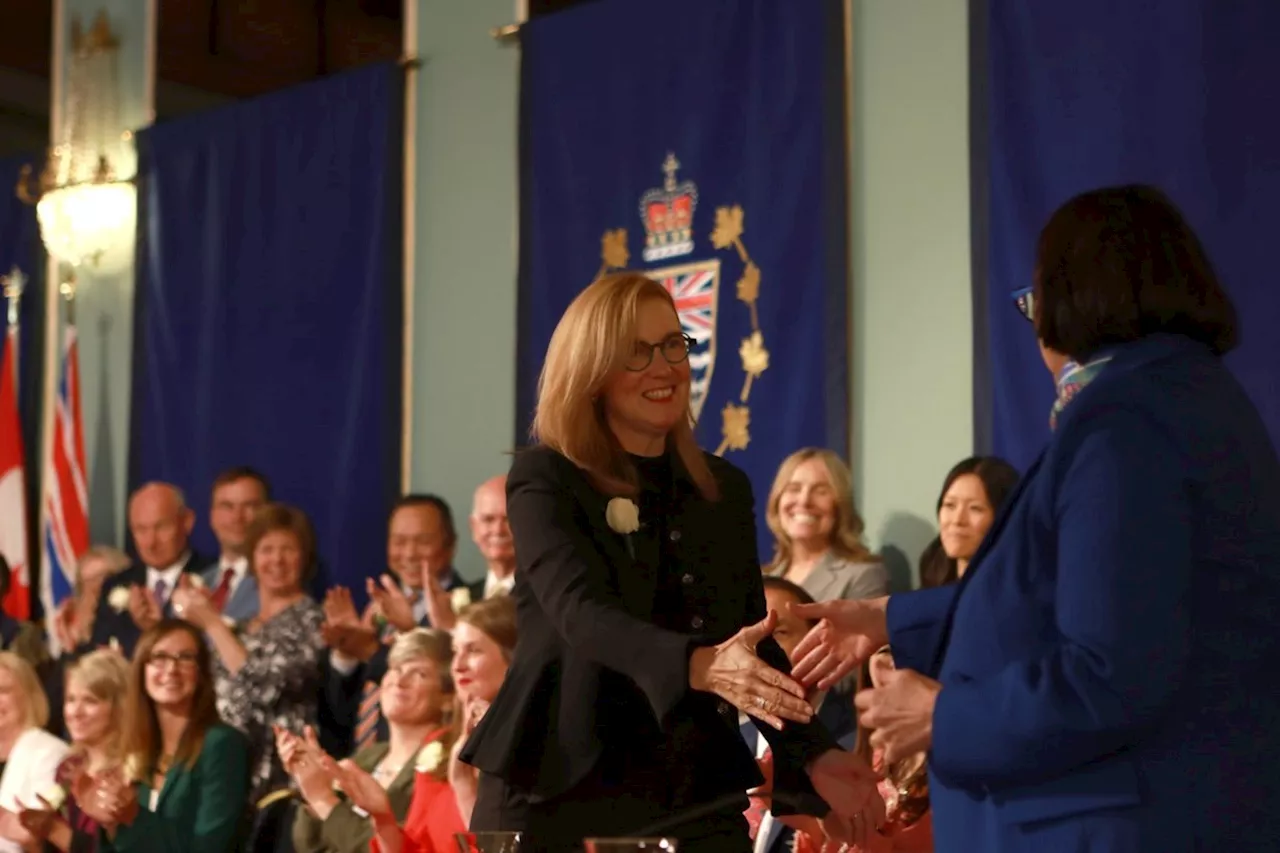The British Columbia government is taking proactive steps to mitigate the economic impact of potential U.S. tariffs, cancelling a promised $1,000 grocery rebate and freezing hiring for some public service positions. Finance Minister Brenda Bailey underscores the unpredictable nature of the tariffs and the need to safeguard core services.
The British Columbia government is taking steps to address the potential economic fallout from U.S. tariffs, announcing the cancellation of a promised $1,000 grocery rebate and a freeze on hiring for some public service positions. Finance Minister Brenda Bailey stated that the impacts of the 'reckless' and 'destabilizing' tariffs threatened by U.S. President Donald Trump are impossible to predict, necessitating these measures. The decisions come as B.C.
's budget is scheduled for release on March 4th, coinciding with the expiration of a month-long pause on Trump's tariffs on Canadian goods and just over a week before tariffs on all foreign aluminum and steel could also commence. Even without tariffs in place, the province is already experiencing economic effects, a situation Bailey believes warrants caution. During the October election campaign, the governing NDP had pledged the $1,000 grocery rebate to all households for the fiscal year ending March 31st. Premier David Eby had portrayed the pledge as offering immediate relief, contrasting it with the Opposition BC Conservative's tax-relief promises, which he claimed would not materialize until 2026. Bailey expressed disappointment over the government's inability to fulfill the rebate promise, citing the challenging economic circumstances and the potential $2-billion cost. Bailey emphasized the government's responsibility to safeguard core services like healthcare, education, social services, and public safety. The hiring freeze, she explained, applies primarily to the province's public service, excluding essential roles such as healthcare workers and specific 'core' public service jobs like correctional and social workers. The government aims to identify cost savings within existing budgets, explore efficiencies in travel and consultancy expenses, and utilize these funds to mitigate the potential impact of tariffs.Paul Finch, president of the BC General Employees' Union, expressed concern over the lack of prior notice regarding the hiring freeze and the absence of a clear list of protected 'core' jobs. He highlighted the crucial role of the civil service in economic stability, emphasizing the importance of maintaining essential functions, particularly in the face of a trade dispute. Finch argued that frontline positions are not overstaffed and urged the government to adopt a measured approach, considering the ratio of non-union managers to frontline workers, which has shifted from 1:4 fifteen years ago to the current 1:3. The looming tariffs have cast a shadow of uncertainty over B.C.'s economy. Bailey revealed that economic modelling, including Canada's retaliatory measures, projects a potential loss of $69 billion in GDP over four years and tens of thousands of jobs. She called the situation 'unimaginable' and warned of the potential for 'economic warfare' between Canada and its closest neighbor.Bryan Yu, chief economist for Central 1 Credit Union, acknowledged the government's challenging position and emphasized the pervasive uncertainty surrounding the budget. He stated that regardless of the timing, the budget would be overshadowed by the potential impact of tariffs. Yu commended the government's cautious approach, ensuring sufficient funds to address the fallout, as a necessary measure in these turbulent times. Bailey confirmed that the government had considered preparing two budgets to accommodate the evolving situation but ultimately opted for a single budget focused on protecting essential services
Tariffs British Columbia Budget Economy Donald Trump Public Service Grocery Rebate NDP
Canada Latest News, Canada Headlines
Similar News:You can also read news stories similar to this one that we have collected from other news sources.
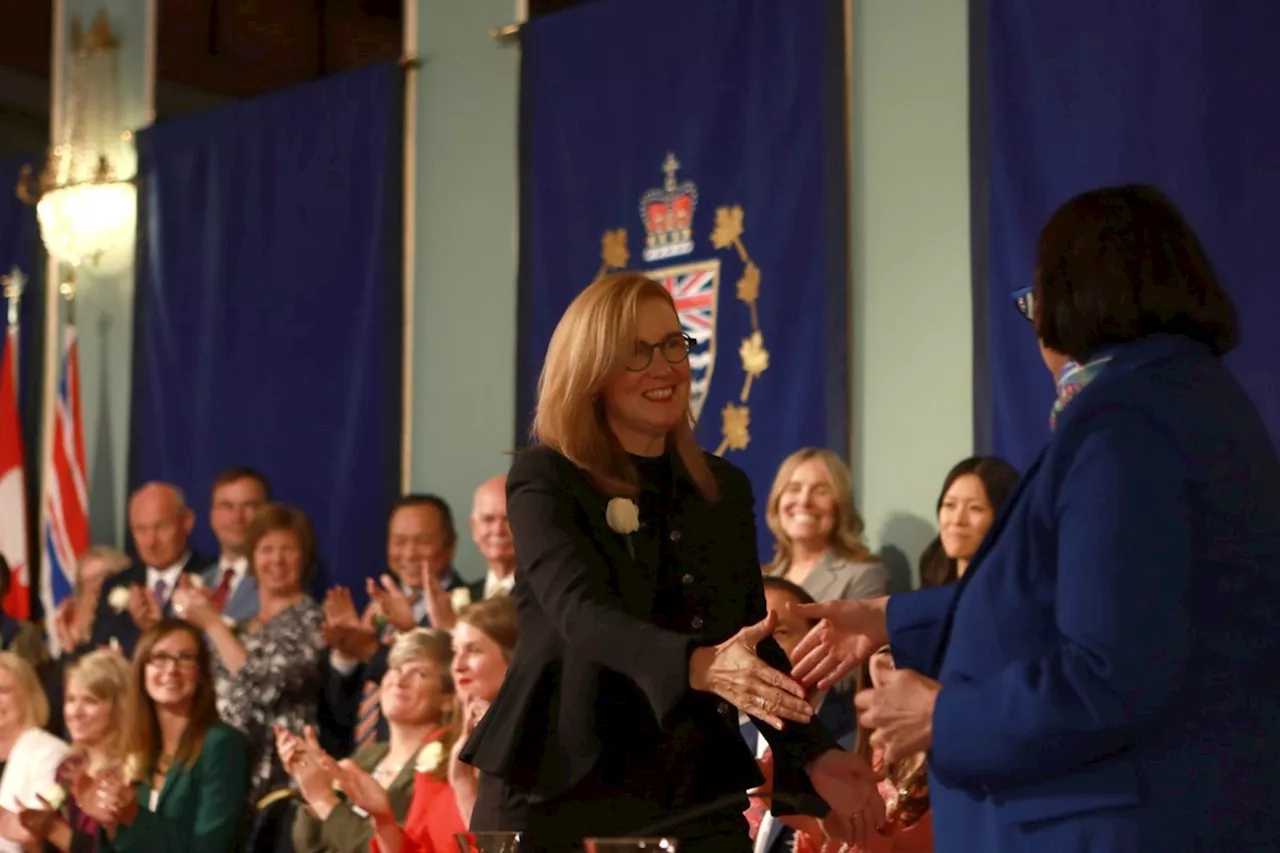 British Columbia Cancels Grocery Rebate, Freezes Hiring Amid US Trade UncertaintyThe British Columbia government faces mounting economic pressure due to the threat of US tariffs, leading to the cancellation of a promised grocery rebate and a hiring freeze across non-essential departments. Finance Minister Brenda Bailey cited the unpredictable nature of the situation, emphasizing the need to prioritize core services and protect the province's economy.
British Columbia Cancels Grocery Rebate, Freezes Hiring Amid US Trade UncertaintyThe British Columbia government faces mounting economic pressure due to the threat of US tariffs, leading to the cancellation of a promised grocery rebate and a hiring freeze across non-essential departments. Finance Minister Brenda Bailey cited the unpredictable nature of the situation, emphasizing the need to prioritize core services and protect the province's economy.
Read more »
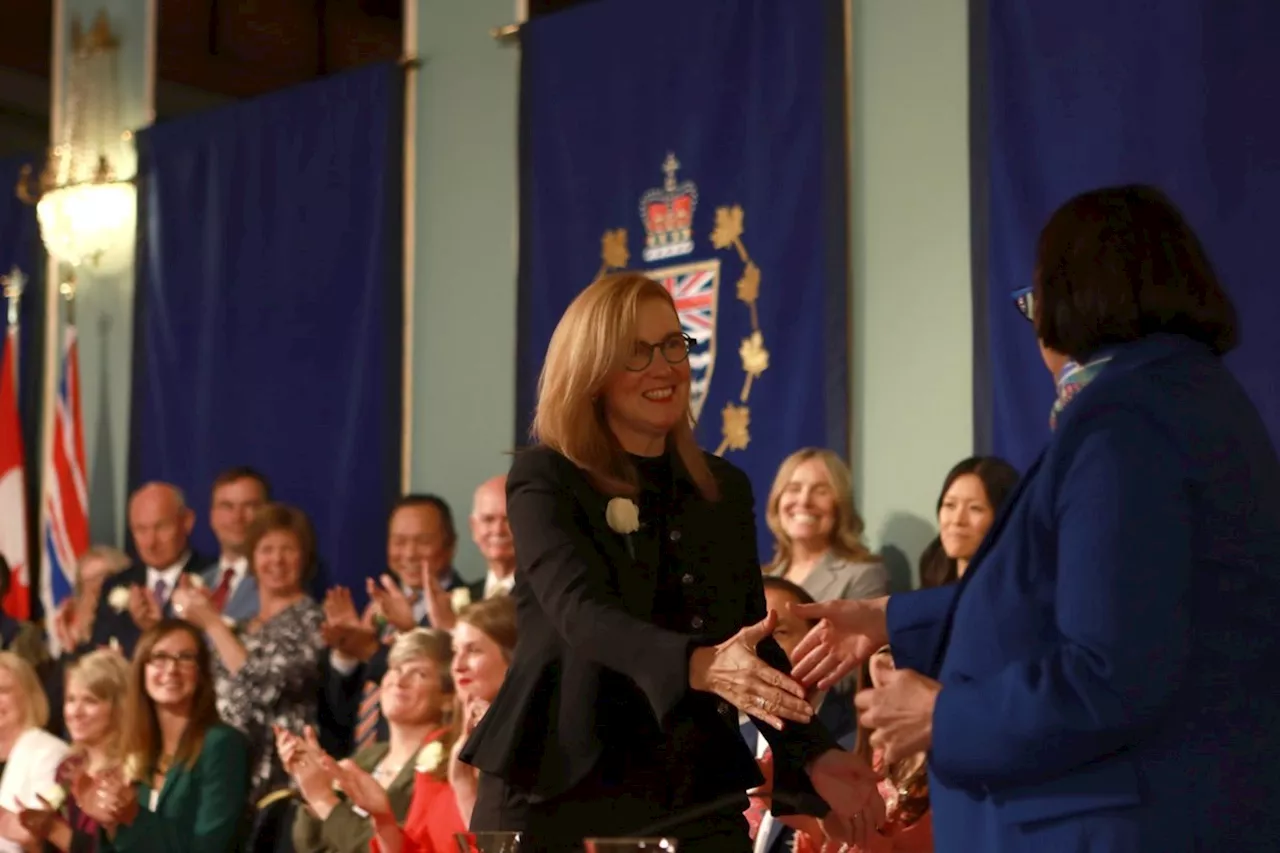 British Columbia Cancels Grocery Rebate, Freezes Hiring Amid U.S. Tariff ThreatFacing 'four years of unpredictability' from the U.S., British Columbia scrambles to balance its budget, scrapping a promised $1,000 grocery rebate and freezing public service hiring. Finance Minister Brenda Bailey cites the potential impact of U.S. tariffs under President Donald Trump as a driving force behind these difficult decisions.
British Columbia Cancels Grocery Rebate, Freezes Hiring Amid U.S. Tariff ThreatFacing 'four years of unpredictability' from the U.S., British Columbia scrambles to balance its budget, scrapping a promised $1,000 grocery rebate and freezing public service hiring. Finance Minister Brenda Bailey cites the potential impact of U.S. tariffs under President Donald Trump as a driving force behind these difficult decisions.
Read more »
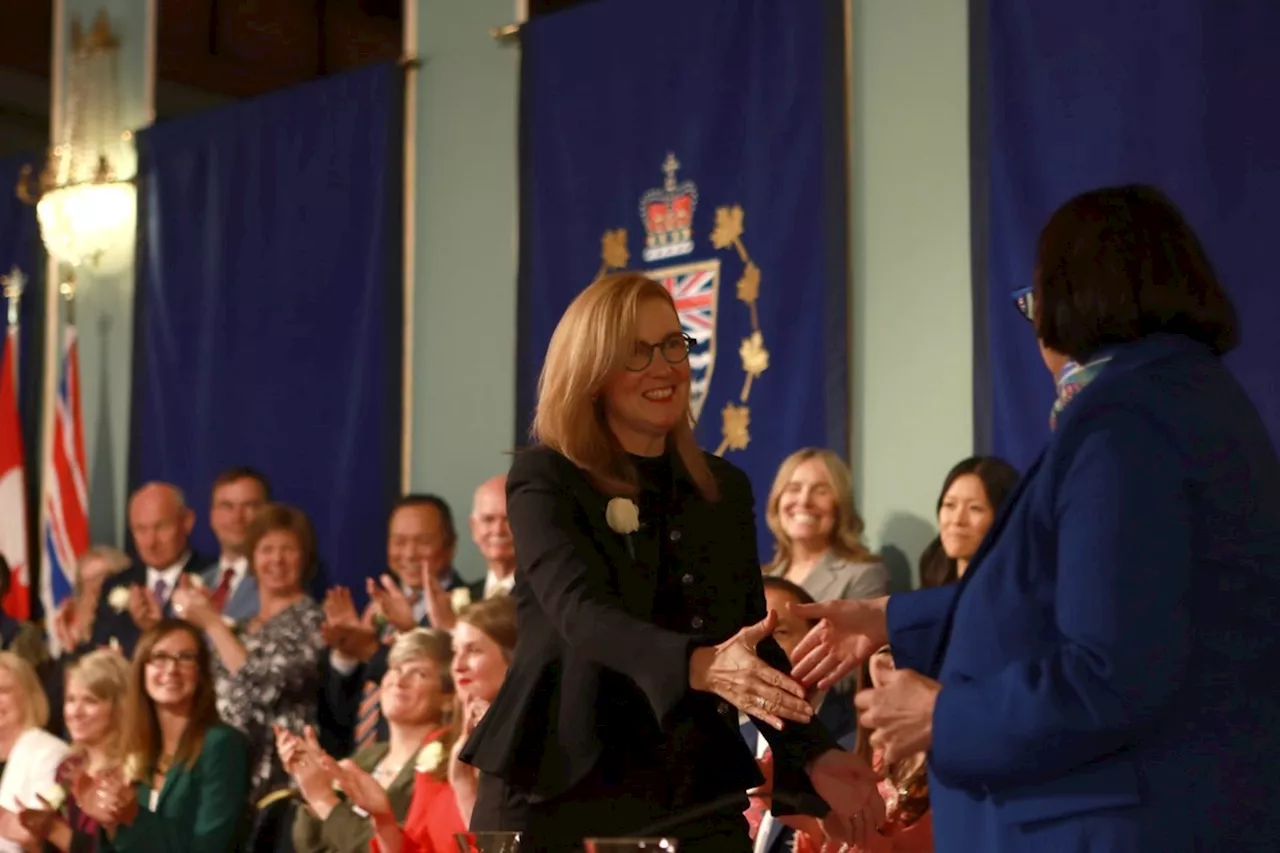 British Columbia Cancels Grocery Rebate, Freezes Hiring Amid US Trade TensionsThe British Columbia government is cancelling a promised $1,000 grocery rebate and is freezing hiring for some public service positions to address budget concerns. Finance Minister Brenda Bailey cites the unpredictable economic impacts of potential US tariffs on Canadian goods as the reason for these measures.
British Columbia Cancels Grocery Rebate, Freezes Hiring Amid US Trade TensionsThe British Columbia government is cancelling a promised $1,000 grocery rebate and is freezing hiring for some public service positions to address budget concerns. Finance Minister Brenda Bailey cites the unpredictable economic impacts of potential US tariffs on Canadian goods as the reason for these measures.
Read more »
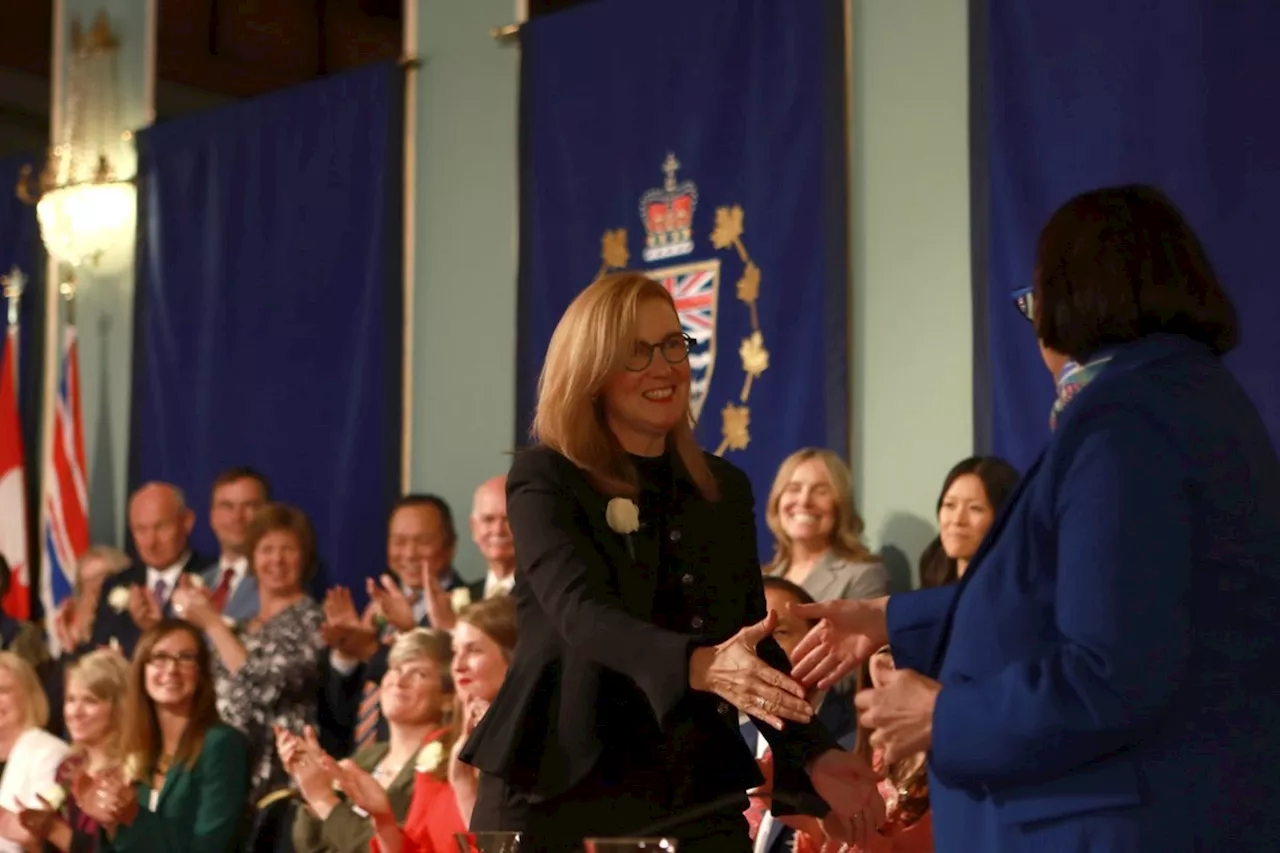 B.C. Cancels Grocery Rebate, Freezes Hiring Amid Trade War FearsThe British Columbia government is cancelling a promised $1,000 grocery rebate and freezing hiring in some public service positions to address a 'four years of unpredictability' from the United States. Finance Minister Brenda Bailey cited the potential impacts of President Donald Trump's 'reckless' and 'destabilizing' tariffs on Canadian goods.
B.C. Cancels Grocery Rebate, Freezes Hiring Amid Trade War FearsThe British Columbia government is cancelling a promised $1,000 grocery rebate and freezing hiring in some public service positions to address a 'four years of unpredictability' from the United States. Finance Minister Brenda Bailey cited the potential impacts of President Donald Trump's 'reckless' and 'destabilizing' tariffs on Canadian goods.
Read more »
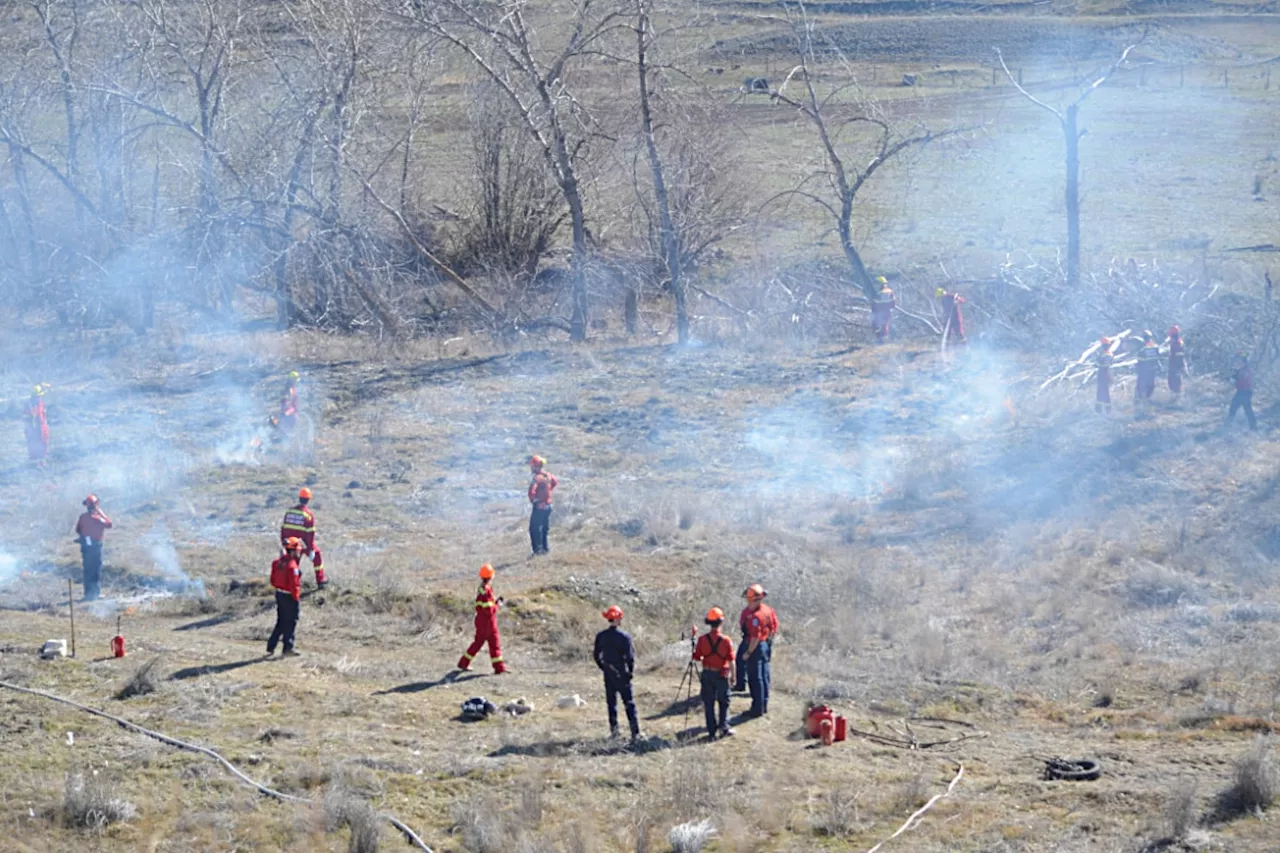 2024 Wildfire Season in British Columbia: Lessons Learned and Continued ResilienceThe 2024 wildfire season in British Columbia, while less severe than the record-breaking 2023 season, still presented significant challenges. This report summarizes the key events, impacts, and initiatives undertaken to mitigate the risks posed by wildfires. It highlights the province's commitment to strengthening community partnerships, embracing Indigenous fire practices, and implementing innovative technologies to enhance wildfire management and emergency response.
2024 Wildfire Season in British Columbia: Lessons Learned and Continued ResilienceThe 2024 wildfire season in British Columbia, while less severe than the record-breaking 2023 season, still presented significant challenges. This report summarizes the key events, impacts, and initiatives undertaken to mitigate the risks posed by wildfires. It highlights the province's commitment to strengthening community partnerships, embracing Indigenous fire practices, and implementing innovative technologies to enhance wildfire management and emergency response.
Read more »
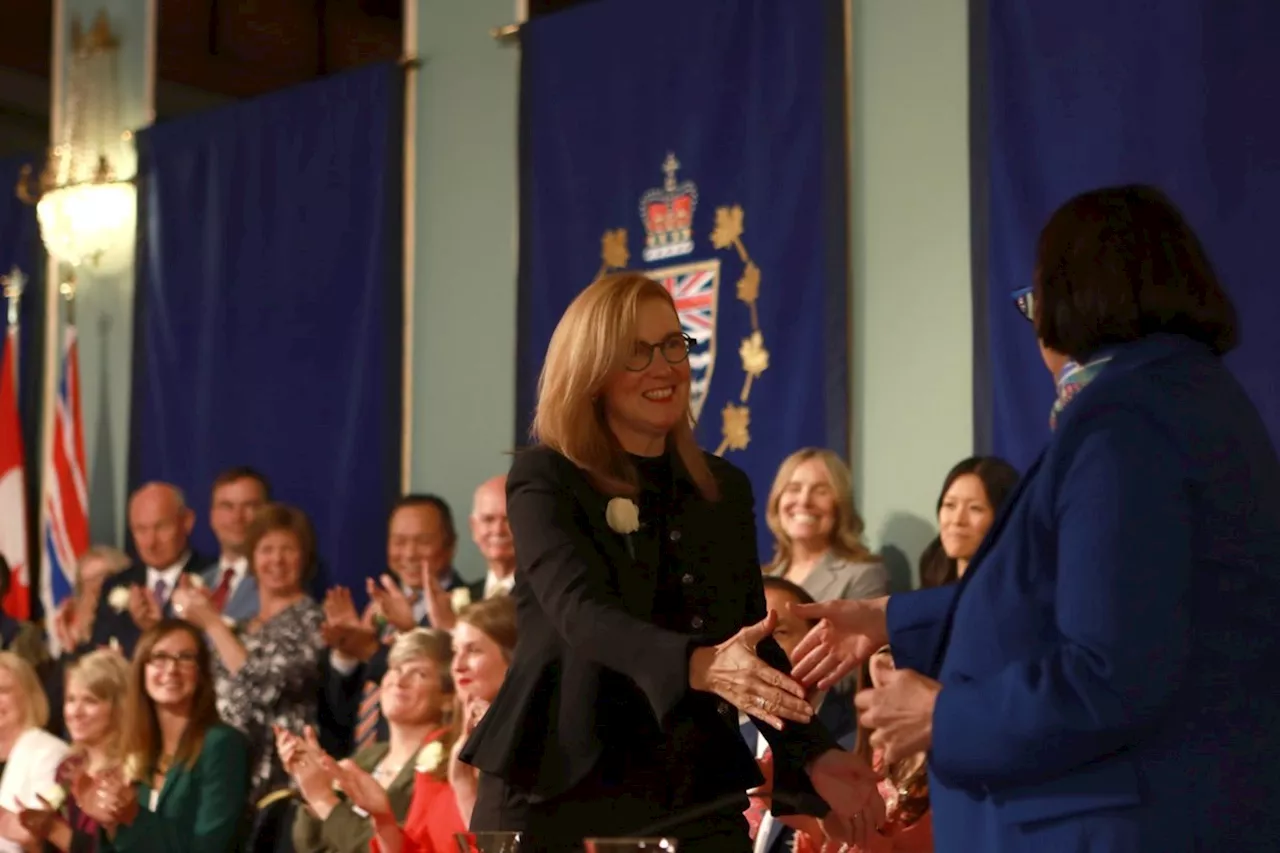 B.C. cancels $1,000 grocery rebate and pauses hiring over Trump's tariff threatsVICTORIA — British Columbia's finance minister says the government is cancelling the $1,000 grocery rebate it promised during the recent election campaign and will pause government hiring over U.S. President Donald Trump's threatened tariffs.
B.C. cancels $1,000 grocery rebate and pauses hiring over Trump's tariff threatsVICTORIA — British Columbia's finance minister says the government is cancelling the $1,000 grocery rebate it promised during the recent election campaign and will pause government hiring over U.S. President Donald Trump's threatened tariffs.
Read more »
